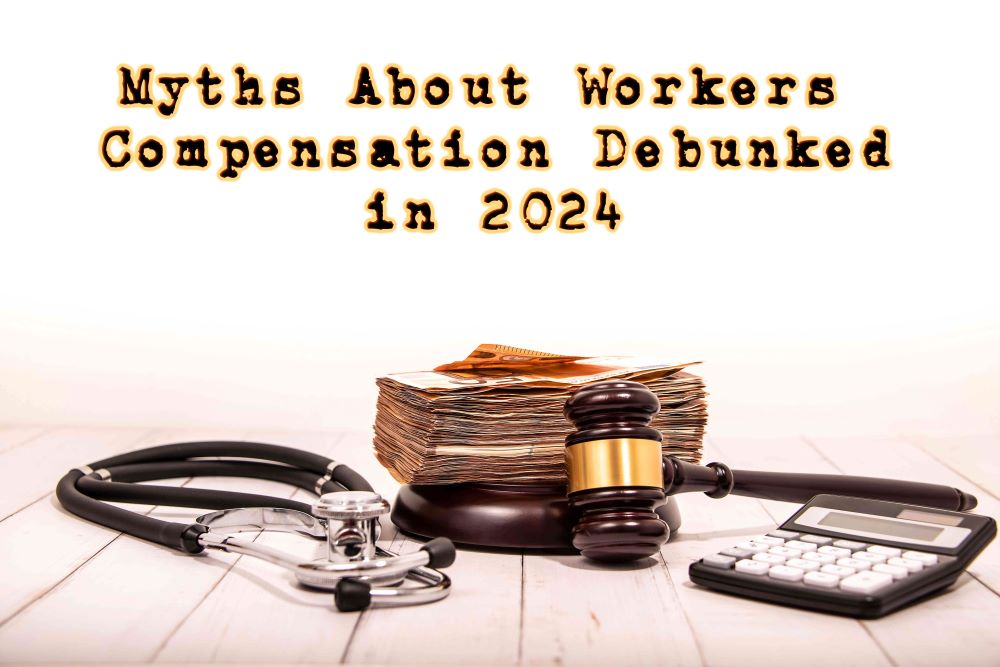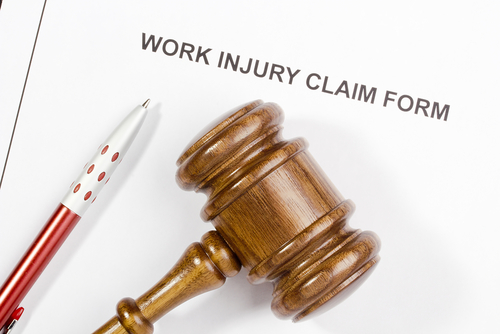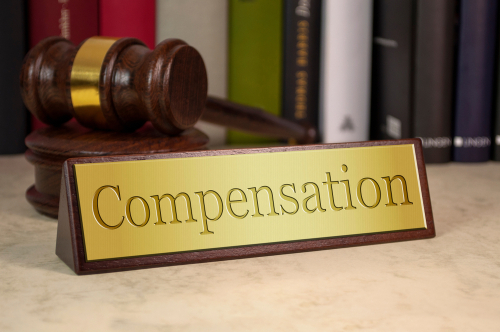Workers’ compensation in Illinois is a system designed to support employees who suffer work-related injuries or illnesses. Governed by the Illinois Workers’ Compensation Act, this program is a crucial element of the state’s labor laws, offering protection and relief to workers across various industries.
The fundamental principle of workers’ compensation is to provide financial assistance and medical care to employees injured on the job, regardless of fault. This system is a form of insurance that most employers in Illinois must carry, ensuring that workers have access to necessary benefits while protecting employers from direct lawsuits for workplace injuries.
The scope of workers’ compensation in Illinois is comprehensive, covering medical expenses, lost wages, and rehabilitation costs associated with workplace injuries or illnesses. It operates under a no-fault system, meaning that employees do not need to prove employer negligence to receive benefits.
However, in exchange for these guaranteed benefits, workers generally forfeit the right to sue their employer for damages related to the injury. This trade-off is a cornerstone of the workers’ compensation system, aiming to balance the interests of both employees and employers.
Under these laws, workers have specific rights, including the right to receive medical treatment, the right to return to work after recovery, and the right to disability compensation if they cannot return to work. Employers, on the other hand, have obligations that include providing workers’ compensation insurance, ensuring a safe work environment, and complying with claims without retaliation against the injured worker. Understanding these rights and obligations is critical for both employees and employers in navigating the workers’ compensation landscape in Illinois.
The framework of workers’ compensation in Illinois is designed to ensure that employees who are injured or fall ill due to their jobs receive prompt and effective medical treatment and financial support. The system emphasizes the importance of workplace safety and aims to facilitate a smooth process for recovery and return to work, benefiting both the employee and the employer.
Understanding Medical Evaluations in Workers’ Comp Cases
Medical evaluations are pivotal in the administration of workers’ compensation claims in Illinois. These evaluations are essential in determining the nature and extent of the work-related injury or illness, which in turn influences the benefits an employee is eligible to receive. The accuracy and thoroughness of these medical assessments are crucial, as they directly impact the decision-making process regarding the approval and extent of workers’ compensation benefits.
There are primarily two types of medical examinations in the realm of workers’ compensation: Independent Medical Examinations (IMEs) and regular treatment evaluations. IMEs are typically requested by the workers’ compensation insurance provider or the employer and are conducted by a doctor who is not the injured worker’s chosen physician.
The purpose of an IME is to obtain an unbiased opinion about the employee’s medical condition, the necessity of proposed treatments, and the extent to which the injury is work-related. In contrast, regular treatment evaluations are conducted by the healthcare provider chosen by the injured worker, focusing on treating the injury and documenting its progress.
The criteria used to determine the necessity and frequency of these evaluations can vary based on the specifics of each case. In general, factors such as the severity of the injury, the expected duration of recovery, the type of medical treatment required, and any disputes regarding the claim can influence the need for and timing of medical evaluations. For instance, in cases where the severity of the injury is unclear or contested, an IME may be requested to provide a clearer picture of the employee’s medical status. Similarly, ongoing treatment evaluations are necessary to monitor the worker’s recovery progress and adjust treatment plans.
In Illinois, the workers’ compensation system aims to ensure that medical evaluations are conducted fairly, impartially, and conducive to the accurate assessment of each claim. This involves balancing the need for independent medical opinions with the worker’s right to receive treatment from a trusted healthcare provider. The frequency and type of medical evaluations are thus carefully considered, taking into account the unique circumstances of each injury or illness and the overall goal of facilitating the employee’s recovery and return to work.
Legal Provisions Regarding Employer-Directed Medical Examinations
In Illinois, the legal framework governing workers’ compensation includes specific provisions about employer-directed medical examinations. These laws delineate the circumstances under which an employer can mandate an employee to undergo a medical evaluation by a specific doctor and outline the rights and protections afforded to employees in these situations.
Under the Illinois Workers’ Compensation Act, employers have the right to request that an injured worker undergo an Independent Medical Examination (IME) by a physician chosen by the employer or the insurance company. This right is typically exercised when there is a dispute about the nature of the injury, the necessary treatment, or the extent to which the injury is work-related. The purpose of the IME is to obtain an objective assessment of the employee’s medical condition, which can be used to determine workers’ compensation benefits.
However, the law also provides safeguards to protect the interests of the employee. One key provision is that the IME should be conducted at a reasonable time and place, considering the employee’s condition and the need for timely medical evaluation. Furthermore, the employee has the right to refuse an examination that does not comply with these conditions. Additionally, employees are entitled to have their own physician present during the IME, which can provide an extra layer of assurance that the examination is conducted fairly and impartially.
Another important aspect of Illinois law is that while employers may require an IME, they cannot unilaterally dictate the ongoing medical treatment for an injured worker. Employees have the right to choose their own doctors for their treatment, subject to certain conditions under the law. This ensures that employees can seek treatment from healthcare providers they trust, which is crucial for their recovery.
In situations where an employee is compelled to see a doctor selected by the employer or the insurance company, it is essential that the employee understands their rights. They have the right to a respectful and unbiased examination and can contest any part of the process they believe to be unfair or unreasonable. Additionally, if an employee feels that the results of an IME are incorrect or biased, they can seek a second opinion from a doctor of their choosing, although this may be at their own expense.
Implications of Refusing an Employer-Directed Medical Exam
In the context of workers’ compensation in Illinois, refusing an employer-directed medical examination can have significant implications. While employees have certain rights and protections, non-compliance with a legitimate request for a medical evaluation can lead to complex legal and financial consequences.
One of the primary repercussions of refusing an employer-requested medical exam is the potential impact on workers’ compensation benefits. If an employee declines to undergo an Independent Medical Examination (IME) without a valid reason, it could result in the suspension or denial of their workers’ compensation benefits.
The rationale behind this is that IMEs are often requested to assess the extent of the injury and to confirm the necessity of the treatments being provided. Without this independent assessment, the employer or the insurance company may challenge the validity of the claim or the need for ongoing benefits.
However, this does not mean that employees are without recourse if they have concerns about an employer-directed medical exam. In Illinois, workers who disagree with their employer’s medical exam requirements have several legal options. Firstly, they can contest the necessity or conditions of the IME. For instance, if the proposed examination is not at a reasonable time or place, or if the employee feels that the process is unfair, they can legally refuse the exam and seek to have the conditions modified.
Another option available to employees is to consult with their own healthcare provider or a legal representative. This can be especially useful in situations where there are disputes about the nature of the injury or the treatment required. An employee’s doctor can provide a second opinion or medical evidence to support the worker’s claim, and a lawyer can offer advice on how to navigate the situation while protecting the employee’s rights.
It’s also important for employees to understand that while they have the right to refuse an IME under certain conditions, doing so requires careful consideration of the potential consequences. The decision should be based on sound medical and legal advice, rather than on a unilateral determination by the employee.
Navigating the landscape of medical examinations in workers’ compensation claims in Illinois can be a nuanced and complex process. It’s essential for both employers and employees to understand the key aspects of employer-directed medical exams and how they fit into the broader context of workers’ compensation claims.
A critical takeaway is the legality and common practice of employers requesting Independent Medical Examinations (IMEs) in certain circumstances. These exams are intended to provide an objective assessment of the employee’s injury and are particularly common when there are disputes regarding the nature or severity of the injury.
However, it’s equally important to recognize the rights and protections that employees have in these situations. Illinois law mandates that these exams be conducted at a reasonable time and place and ensures that employees are not compelled to undergo unfair or biased evaluations.
Understanding your rights and obligations in this process is vital. Employees should be aware that while they can refuse an IME under specific conditions, doing so without a valid legal reason could adversely affect their workers’ compensation benefits. On the other hand, employers must ensure that their requests for medical exams are justified and in compliance with the legal standards set forth in Illinois.
In cases where there is a disagreement or confusion regarding employer-directed medical exams, seeking legal advice or assistance is highly recommended. Legal professionals who practice in workers’ compensation law can provide invaluable guidance and representation. They can help clarify the legal nuances, protect your rights, and ensure that the actions taken are in accordance with Illinois laws. Whether it’s disputing the conditions of an IME, contesting the suspension of benefits, or simply navigating the complexities of the workers’ compensation system, legal counsel can be a crucial resource.
Speak With Our Antioch Workers’ Compensation Lawyer Today!
If you, or someone you love, has been injured on the job call Bob and put his 20+ years of experience to work explaining the law and letting you know your legal options. During the initial evaluation, Bob will take a detailed look at your case and let you know whether you need an attorney and exactly what he can do for you.
The evaluation is FREE. You will not be pressured in any way to sign a contract. After hearing the details of your case, Bob and you can decide if you need an attorney, and if so, whether his law firm is right for you.
Were you injured in an accident caused by the negligence of another? Contact our Antioch workers’ compensation lawyer today for your free case evaluation. For immediate assistance, call The Law Office of Robert T. Edens at (847) 395-2200.











